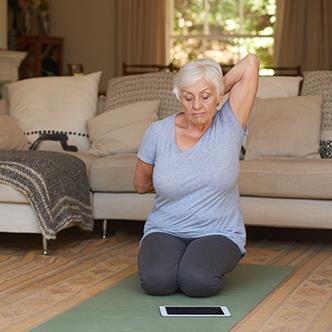
A simple self-help program that encourages walking and exercise provides symptom relief for patients with chronic fatigue, based on results of a study published in The Lancet.
Known as the GETSET trial (Graded Exercise Therapy Guided Self-help Trial), this study explored the added benefits of a low-cost exercise program as part of treatment for chronic fatigue. The goal was to see whether an at-home exercise program, rather than a more costly intensive program, is both safe and effective for patients with chronic fatigue.
Chronic fatigue is characterized by unexplained, disabling fatigue and affects up to 2.6% of the U.S. population.
The GETSET trial was conducted from 2012–2014 and included 211 adults treated for chronic fatigue at two clinics in the UK. To qualify, patients had to have at least four months of unexplained fatigue and at least one of ten common symptoms, including difficulty sleeping, headaches, cognitive dysfunction, flu-like symptoms, painful lymph nodes, sore throat, worsening symptoms with physical or mental exertion, dizziness or nausea, heart palpitations and muscle or joint pain.
For three months, half of participants were assigned to standard treatment, while the remaining half received standard treatment plus a self-help exercise program. The self-help program included a booklet describing a graded exercise program, as well as four visits with a physical therapist. During these visits, therapists provided guidance on exercise and helped answer any questions participants had. To help minimize costs, the first session was offered in person, while the three additional visits were offered by phone or skype.
Overall, the self-help program encouraged starting a daily routine, stretching, choosing a new type of physical activity, and increasing the activity in duration and intensity over the course of twelve weeks. It also advised patients to maintain, rather than increase their physical activity, for a period of time if their fatigue worsened.
After tracking participants’ health over the course of the study, researchers found that the self-help program helped significantly reduce symptoms of fatigue compared to standard care. The self-help program also significantly improved participants’ overall physical function and was just as safe as standard care.
What findings show, according to authors, is that self-care may be a useful addition to standard treatment for chronic fatigue. Not only is the program lower cost than more intensive programs, it was both safe and effective for participants in this study. Authors hope findings promote future research to further evaluate self-care programs and help improve treatment for patients with chronic fatigue.